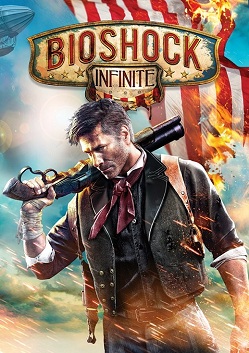Clear Christianity Made ‘Bioshock’ Better
 “If you can agree that stories are powerful, and that particularly good stories influence culture, then I hope that you can see the importance of Christians being active in the video game industry.” So observes Christ and Pop Culture columnist Brad Williams, who offers anecdotal evidence:
“If you can agree that stories are powerful, and that particularly good stories influence culture, then I hope that you can see the importance of Christians being active in the video game industry.” So observes Christ and Pop Culture columnist Brad Williams, who offers anecdotal evidence:
Read this story about a person who worked for the third installment of the Bioshock series. I do not know if this individual was a Christian, all I know is that he was ‘religious’. But he saw something offensive in the game, something so bad that he was willing to quit his job over it. His boss, Ken Levine, didn’t want this guy to quit because he was a good worker, and so they had a heart to heart.
Here is what Levine said about their chat: “We actually ended up having a long talk; he was an extremely religious guy and when we started talking, I realized that something I could connect to was a notion of forgiveness and what an important part that is of the New Testament and why Christ was such a revolutionary figure.”
Read the rest at Christ and Pop Culture.
Among Spec-Faith’s audience, it’s easy to yes-and-amen these statements.
- Yes, we need to avoid evangelical “creative” subcultures.
- Yes, we need not fear “secular” industries or genres such as those for video games.
- Yes, it would be ridiculous to “be offended” for its own sake, as if anything in culture is more powerful than Christ and His Story.
Note, however, what led to this “heart to heart” conversation: a faithful employee who showed conviction (evidently based on Scripture) and was ready to sacrifice his job, not simply out of “being offended,” but apparently because he no longer felt he could honestly support the project. In the context of a workplace relationship and trust, Levine was ready to listen to the employee — and even learn from the employee’s Christian beliefs to help make a video-game story better.
So should we find incidental references “to the unknown god” in secular culture, and compare them with the real God (Acts 17:23)?
Yes.
Should we also be ready and willing to find those “unknown god” references and contrast them with the real God (Acts 17: 29-31)? And face any resulting mockery or even cultural ostracism (Acts 17:32)?
Also yes.





























Truly fascinating. I wish we knew more about the themes/content that the artist objected to. He may have spared the mainstream entertainment industry from yet another generic evil Christian antagonist. It doesn’t sound like they changed the villain’s concept, but maybe they’ll write the villain in a more redeemable way, that grace will be seen in it.